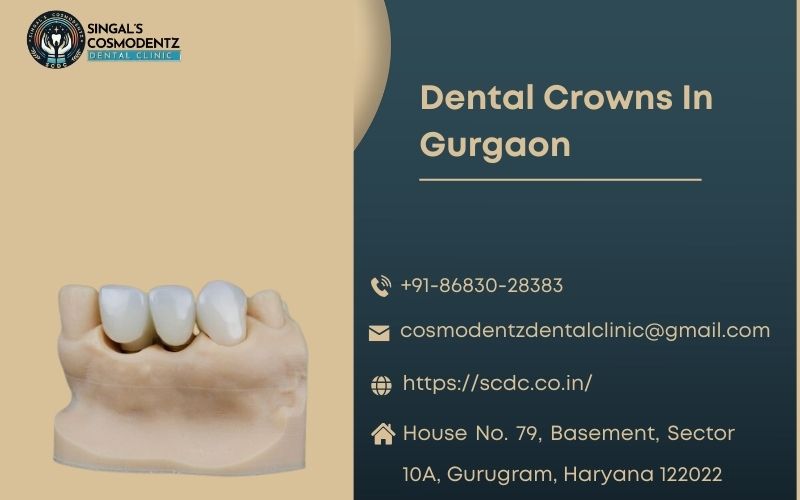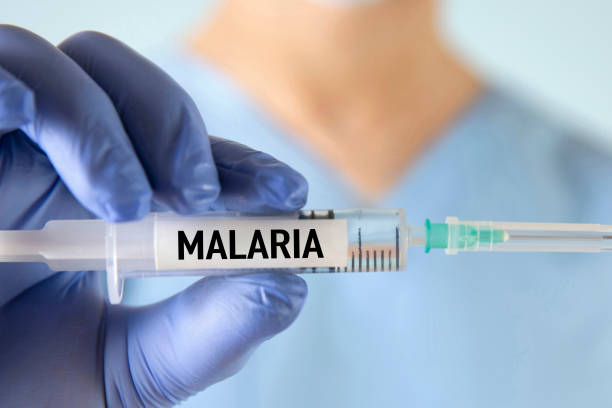-
Table of Contents
Invest in Your Future Well-being: Embrace Preventive Healthcare.
Preventive healthcare refers to the proactive measures taken to prevent the onset or progression of diseases and promote overall well-being. By investing in preventive healthcare, individuals can prioritize their future well-being by adopting healthy lifestyle choices, undergoing regular screenings, and receiving vaccinations. This approach aims to detect and address potential health issues early on, reducing the risk of developing chronic conditions and improving overall quality of life.
The Importance of Regular Check-ups and Screenings for Early Detection
Preventive Healthcare: Investing in Your Future Well-being
Regular check-ups and screenings are essential components of preventive healthcare. By prioritizing these appointments, you are taking proactive steps to safeguard your future well-being. Early detection of potential health issues can significantly increase the chances of successful treatment and improve overall outcomes. In this article, we will explore the importance of regular check-ups and screenings in maintaining good health.
One of the primary benefits of regular check-ups is the opportunity for healthcare professionals to assess your overall health and identify any potential concerns. During these appointments, your doctor will conduct a thorough examination, checking vital signs, reviewing your medical history, and discussing any symptoms or concerns you may have. By doing so, they can detect early warning signs of various health conditions, such as high blood pressure, diabetes, or heart disease.
Moreover, regular check-ups provide an opportunity for healthcare professionals to offer guidance on preventive measures and lifestyle modifications. They can provide advice on maintaining a healthy diet, engaging in regular exercise, and managing stress levels. By following these recommendations, you can significantly reduce the risk of developing chronic diseases and improve your overall well-being.
In addition to regular check-ups, screenings play a crucial role in preventive healthcare. Screenings are specific tests or examinations that aim to detect diseases or conditions before symptoms appear. These screenings can identify potential health issues at an early stage when treatment is often more effective.
For instance, mammograms are recommended for women over the age of 40 to screen for breast cancer. By detecting breast cancer in its early stages, treatment options are more likely to be successful, and the chances of survival increase significantly. Similarly, colonoscopies are recommended for individuals over the age of 50 to screen for colorectal cancer. Detecting and removing precancerous polyps during a colonoscopy can prevent the development of colorectal cancer altogether.
Regular screenings also play a vital role in identifying risk factors for certain diseases. For example, cholesterol screenings can help identify individuals at risk of developing heart disease. By detecting high cholesterol levels, healthcare professionals can recommend lifestyle changes or prescribe medication to manage the condition and reduce the risk of heart-related complications.
It is important to note that the frequency and types of screenings recommended may vary depending on factors such as age, gender, and family history. Therefore, it is crucial to consult with your healthcare provider to determine which screenings are appropriate for you.
In conclusion, regular check-ups and screenings are essential for early detection and prevention of potential health issues. By investing in your future well-being through preventive healthcare, you are taking proactive steps to maintain good health and increase the chances of successful treatment. Regular check-ups allow healthcare professionals to assess your overall health, offer guidance on preventive measures, and detect early warning signs of various conditions. Screenings, on the other hand, aim to detect diseases before symptoms appear, increasing the chances of successful treatment and improving overall outcomes. By prioritizing preventive healthcare, you are investing in a healthier future for yourself.
Promoting Healthy Lifestyle Habits for Disease Prevention
Preventive Healthcare: Investing in Your Future Well-being
Promoting Healthy Lifestyle Habits for Disease Prevention
In today’s fast-paced world, it is easy to neglect our health. We often prioritize work, family, and other responsibilities over taking care of ourselves. However, investing in preventive healthcare is crucial for our future well-being. By adopting healthy lifestyle habits, we can significantly reduce the risk of developing various diseases and improve our overall quality of life.
One of the most effective ways to prevent diseases is by maintaining a balanced diet. A diet rich in fruits, vegetables, whole grains, and lean proteins provides our bodies with essential nutrients and antioxidants. These nutrients help strengthen our immune system, fight off harmful free radicals, and reduce the risk of chronic diseases such as heart disease, diabetes, and certain types of cancer. Additionally, limiting the intake of processed foods, sugary drinks, and unhealthy fats can help prevent obesity and its associated health problems.
Regular physical activity is another crucial aspect of disease prevention. Engaging in moderate-intensity exercises, such as brisk walking, swimming, or cycling, for at least 150 minutes per week can significantly reduce the risk of developing chronic conditions. Exercise helps maintain a healthy weight, lowers blood pressure, improves cardiovascular health, and boosts mental well-being. It also plays a vital role in preventing osteoporosis, strengthening muscles and bones, and reducing the risk of falls and fractures, especially in older adults.
In addition to a healthy diet and regular exercise, getting enough sleep is essential for disease prevention. Sleep deprivation has been linked to an increased risk of obesity, diabetes, cardiovascular disease, and mental health disorders. Aim for seven to eight hours of quality sleep each night to allow your body to repair and rejuvenate. Establishing a consistent sleep schedule, creating a relaxing bedtime routine, and avoiding electronic devices before bed can help improve sleep quality.
Stress management is another crucial aspect of preventive healthcare. Chronic stress can weaken the immune system, increase the risk of mental health disorders, and contribute to various physical ailments. Engaging in stress-reducing activities such as meditation, deep breathing exercises, yoga, or engaging in hobbies can help alleviate stress and promote overall well-being. It is also important to prioritize self-care and take time for yourself regularly.
Regular health check-ups and screenings are vital for early detection and prevention of diseases. Schedule regular visits with your healthcare provider to monitor your overall health, discuss any concerns, and receive appropriate screenings based on your age, gender, and family history. These screenings may include blood pressure checks, cholesterol tests, mammograms, Pap smears, colonoscopies, and prostate exams. Early detection of diseases such as cancer, diabetes, and cardiovascular conditions can significantly improve treatment outcomes and increase the chances of a full recovery.
Lastly, it is important to avoid harmful habits such as smoking and excessive alcohol consumption. Smoking is a leading cause of preventable diseases, including lung cancer, heart disease, and respiratory conditions. Quitting smoking can significantly reduce the risk of developing these diseases and improve overall health. Similarly, excessive alcohol consumption can lead to liver disease, cardiovascular problems, and mental health disorders. Moderation is key when it comes to alcohol consumption.
Investing in preventive healthcare by adopting healthy lifestyle habits is a wise decision that will benefit you in the long run. By maintaining a balanced diet, engaging in regular physical activity, getting enough sleep, managing stress, scheduling regular check-ups, and avoiding harmful habits, you can significantly reduce the risk of developing diseases and improve your overall well-being. Remember, prevention is always better than cure. Start investing in your future well-being today.
Understanding the Benefits of Vaccinations and Immunizations
Preventive Healthcare: Investing in Your Future Well-being
Understanding the Benefits of Vaccinations and Immunizations
In today’s fast-paced world, it is easy to overlook the importance of preventive healthcare. We often find ourselves caught up in the demands of our daily lives, neglecting to prioritize our well-being. However, investing in preventive healthcare is crucial for maintaining a healthy and fulfilling life. One aspect of preventive healthcare that should not be overlooked is the importance of vaccinations and immunizations.
Vaccinations and immunizations are powerful tools in the fight against infectious diseases. They work by stimulating the immune system to produce an immune response, which helps protect against future infections. By receiving vaccinations and immunizations, individuals can significantly reduce their risk of contracting and spreading diseases.
One of the most significant benefits of vaccinations and immunizations is their ability to prevent the spread of contagious diseases. Diseases such as measles, mumps, rubella, and whooping cough can spread rapidly among unvaccinated individuals, leading to outbreaks and epidemics. By ensuring that a significant portion of the population is vaccinated, we can create herd immunity, which provides indirect protection to those who cannot receive vaccinations due to medical reasons or age.
Furthermore, vaccinations and immunizations can prevent severe complications and even death. Diseases such as influenza, pneumonia, and hepatitis can have devastating consequences, particularly for vulnerable populations such as the elderly, young children, and individuals with weakened immune systems. By getting vaccinated, individuals can significantly reduce their risk of developing severe complications from these diseases.
In addition to protecting individuals, vaccinations and immunizations also have economic benefits. The cost of treating vaccine-preventable diseases can be substantial, both for individuals and healthcare systems. By investing in preventive healthcare, we can reduce the burden on healthcare systems and allocate resources more efficiently. Moreover, preventing diseases through vaccinations and immunizations can also lead to fewer missed workdays and increased productivity, benefiting both individuals and the economy as a whole.
It is important to note that vaccinations and immunizations are not only for children. While childhood vaccinations are crucial, adults also need to stay up to date with their immunizations. Vaccines such as the flu shot, tetanus, and shingles vaccines are recommended for adults to protect against common diseases and their complications. By staying current with immunizations, adults can protect themselves and those around them.
Despite the overwhelming evidence supporting the benefits of vaccinations and immunizations, there are still misconceptions and concerns surrounding their safety. It is essential to rely on accurate and evidence-based information when making decisions about vaccinations. Consulting with healthcare professionals and reputable sources can help address any concerns and provide the necessary information to make informed choices.
In conclusion, preventive healthcare is an investment in our future well-being. Vaccinations and immunizations play a crucial role in preventing the spread of diseases, protecting individuals from severe complications, and reducing the economic burden on healthcare systems. By prioritizing preventive healthcare and staying up to date with vaccinations and immunizations, we can take control of our health and ensure a healthier future for ourselves and our communities.Preventive healthcare is a crucial investment in one’s future well-being. By taking proactive measures to maintain good health and prevent potential illnesses, individuals can significantly improve their quality of life and reduce healthcare costs in the long run. Regular check-ups, screenings, vaccinations, and adopting a healthy lifestyle can help detect and address health issues at an early stage, leading to better treatment outcomes and overall well-being. Investing in preventive healthcare not only benefits individuals but also contributes to the overall improvement of public health and the reduction of healthcare burdens on society.




